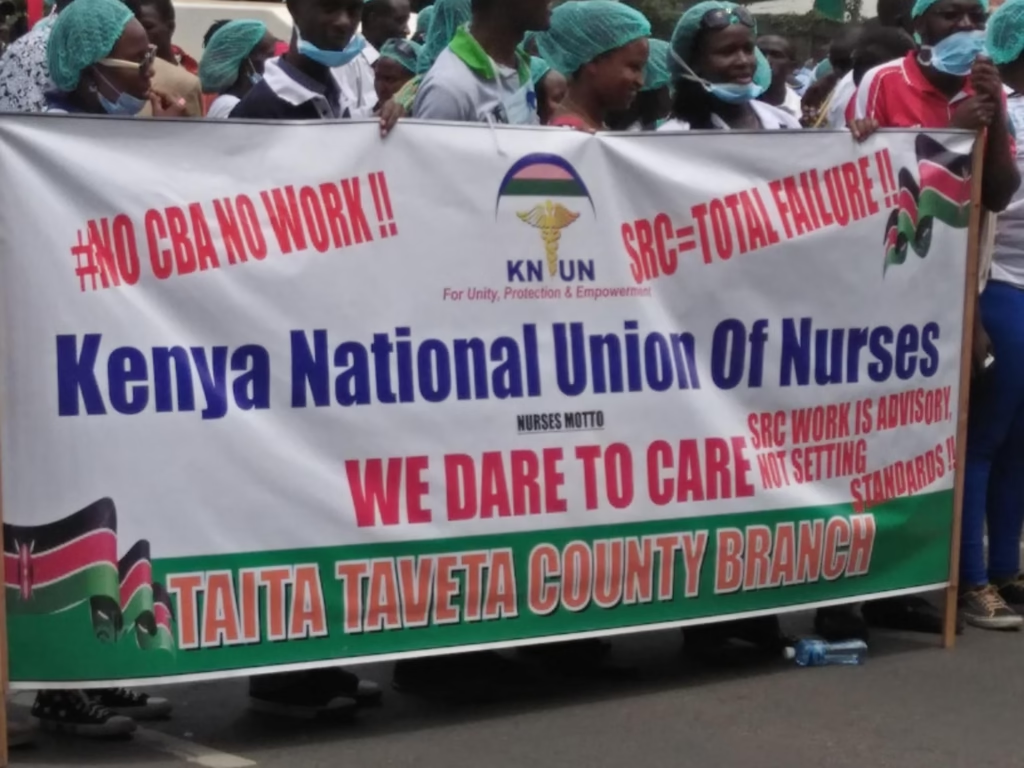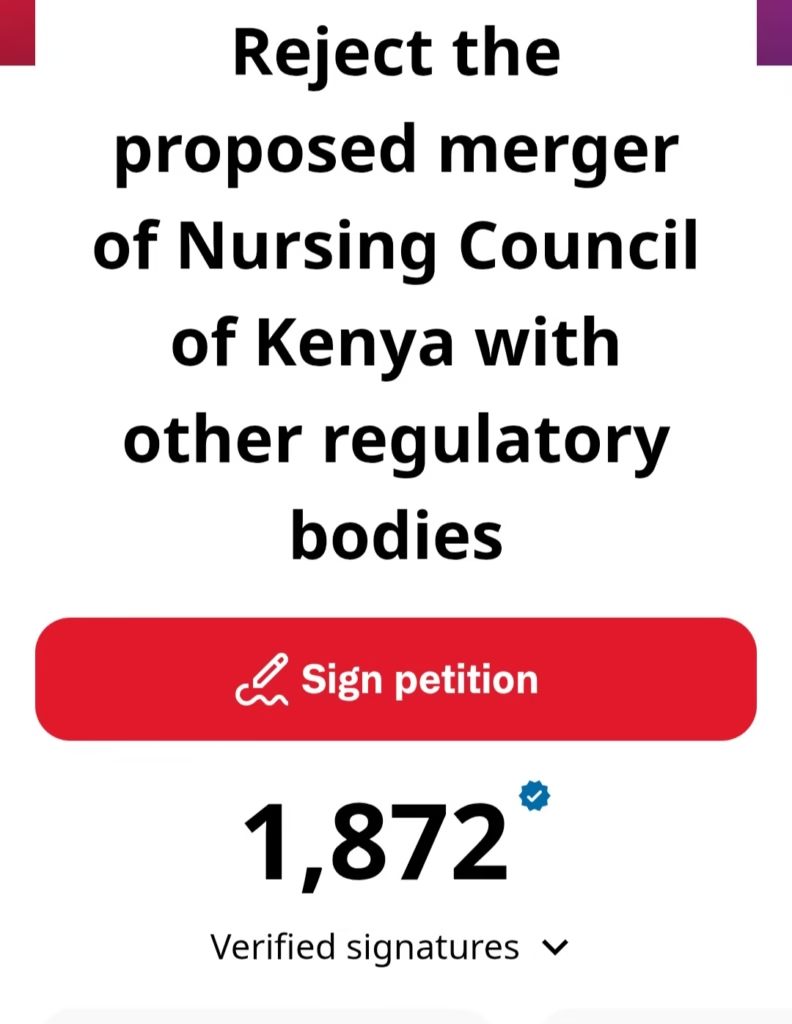By Fellow Nurses Africa Correspondent
Nairobi, Kenya – March 20, 2025
The Kenyan nursing community is currently in crisis as nurses launched a fierce opposition against the government’s proposed plan to merge the Nursing Council of Kenya (NCK) with other regulatory bodies. The move, part of a wider state restructuring strategy, has sparked an outcry among nurses who fear the potential loss of autonomy and oversight specific to their profession.
The restructuring, approved by the Kenyan Cabinet in January 2025, aims to streamline 42 state corporations into 20 entities and dissolve nine others. As part of these changes, the NCK is set to be declassified, meaning it will no longer receive budgetary allocations from the government.

Nurses Reject the Merger
In response, the National Nurses Association of Kenya (NNAK) has launched a petition urging the government to reconsider the merger. They argue that the NCK plays a critical role in regulating and maintaining high professional standards in nursing and midwifery, ensuring patient safety and professional development.
“The Nursing Council of Kenya understands our challenges, our training, and our profession better than any other regulatory body. Merging it with other councils would dilute its mandate and compromise the quality of nursing regulation in Kenya,” the petition states.
As of today, the petition has garnered over 1,872 verified signatures, with the numbers rising rapidly as more healthcare professionals and concerned citizens rally behind the cause.

Government Defends the Move
On the other hand, supporters of the merger, including the Kenya Medical Practitioners, Pharmacists, and Dentists Union (KMPDU), believe the restructuring will enhance efficiency. KMPDU Secretary-General Dr. Davji Atellah argued that consolidating healthcare regulatory bodies would streamline licensing processes, reduce bureaucratic delays, and improve coordination in the sector.
“We have seen cases where fragmented regulation has led to inefficiencies. A single regulatory authority will promote uniformity in healthcare professional standards,” Atellah stated.
Concerns Over the Future of Nursing Regulation
Despite these assurances, nurses remain unconvinced, stressing that their profession requires specialized oversight that a generalized regulatory body may not adequately provide. The fear is that the merger could lead to policies that do not fully address the unique needs of nurses, ultimately affecting the quality of healthcare delivery in the country.
At the time of filing this report, Fellow Nurses Africa (FNA) correspondents have not been able to speak with the Registrar of the Nursing and Midwifery Council of Kenya for official comments. The government has also yet to release a comprehensive statement addressing the concerns raised by the nursing community.
What’s Next?
With mounting opposition, it remains to be seen whether the government will reconsider its decision or push forward with the merger. Meanwhile, nurses across Kenya continue to voice their concerns, urging lawmakers and the Ministry of Health to uphold the Nurses and Midwives Act (CAP 257), which establishes the NCK as the sole regulatory body for nursing and midwifery in Kenya.
As the debate unfolds, one thing is clear: the future of nursing regulation in Kenya hangs in the balance, and the outcome will have lasting implications for healthcare standards across the country.
For more updates on this developing story, stay tuned to Fellow Nurses Africa.











